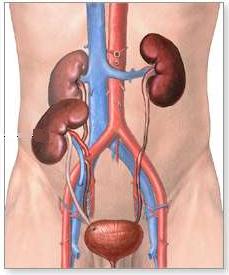5 minutes Transplanted kidney

Transplanted kidney is the main focus of a short case in 9% of attempts at PACES station 1. It is not difficult to diagnose this condition. Just remember, iliac fossa scar with a mass equivalent to transplanted kidney until proven otherwise! However, the story does not end here for MRCPian. As a MRCPian, you need to search for the causes, complications and the functional capacity of the patient (4Cs rule).
1. Causes
* Most of the cases shown are polycystic kidney disease
* Other causes include DM (check for dermopathy and diabetic ulcers), GN and etc
2. Complications
a. Side effects of medications
** Azathioprine - myelosuppression with bruises, pallor, jaundice
** Cyclosporin - hand tremor, hypertrichosis, gum hyperplasia, high BP
** Prednisolone - Cushing's syndrome, pallor secondary to UGIB
b. Hepatitis B/C with CLD signs
3. Functional capacity
* Signs of graft rejection - tender transplanted kidney
* Signs of infections - they have 1001 reasons to get infections
* Uremic/hepatic encephalopathy - unlikely to appear in PACES!
Labels: Abdomen








2 Comments:
Dear emrcpian, thanks for the tips.
Bilateral nephrectomy scars with a transplanted kidney -> APKD with ESRF until proven otherwise!
Ya, scar is always a gift for MRCPian!
Post a Comment
<< Home